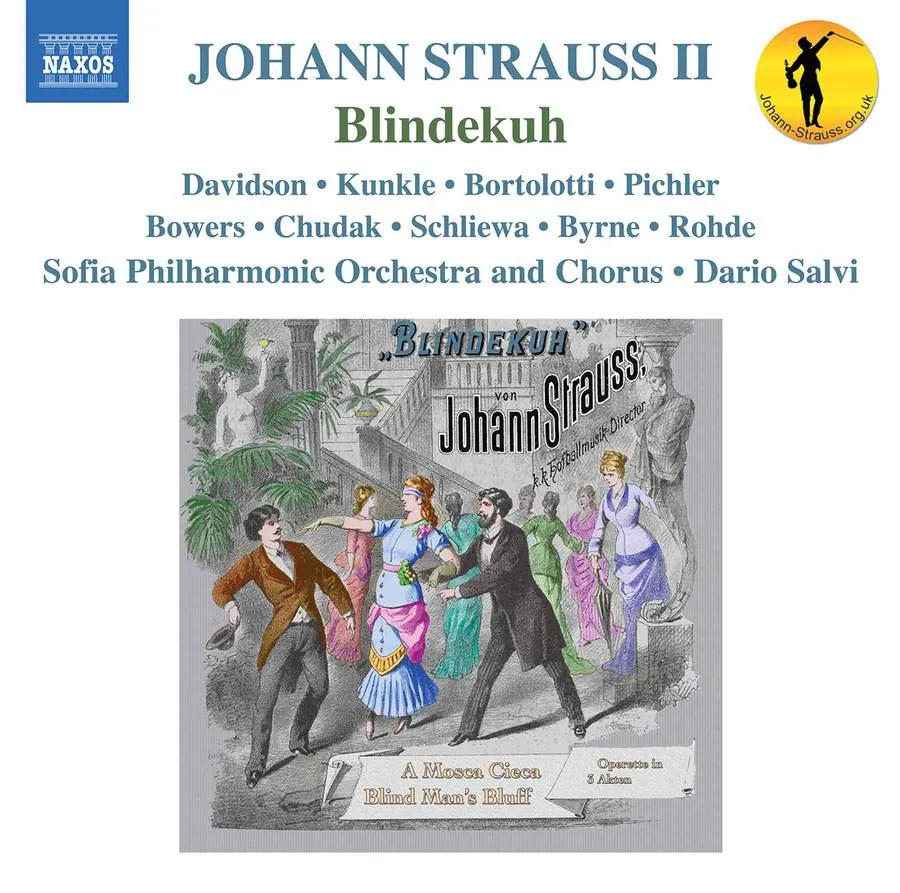
J Strauss II Blindekuh (Blind Man’s Bluff) Robert Davidson, Kirsten C. Kinkle, Martina Bortolotti, Roman Pitcher, James Bowers, Andrea Chudak, Daniel Schliewa, Emily K. Byrne, Julian Rohde; Sofia Philharmonic Orchestra/Dario Salvi Naxos 8.660434-35 105:11 mins (2 discs)
Johann Strauss’s sixth operetta, Blind Man’s Bluff, ran for just 16 performances in 1878 and not much has been heard of it since. It is presented here via concert performances from Sofia (January 2019); there’s no dialogue, but you can find a libretto and a translation of the sung sections on the Naxos website. One item in the score turns out to be familiar from another context – a waltz from the second-act finale found its way into the 1928 Johann Strauss pastiche Casanova (put together by Ralph Benatzky), where it became famous as the Nuns’ Chorus. Held back by an inconsequential and over-complex plot – basically about a marriageable young woman and two young men, one claiming to be the other – Blindekuh is probably a piece for Strauss completists only.
Martina Bortolotti is entirely capable as the marriageable Waldine, while Emily K Byrne matches her nicely as the latter’s knowledgeable governess, Elvira. Robert Davidson attempts to maintain dignity as Scholle, Waldine’s father. Kirsten C Kunkle is spirited as his wife Arabella. James Bowers is eager as Scholle’s supposed American nephew, Adolf Bothwell, while Andrea Chudak throws personality at his disgruntled wife, Betsy. Roman Pichler shows himself a skilled operetta tenor as Hellmuth (disguised as Adolf) and Julian Rohde is expert as servant Johann.
Both chorus and orchestra achieve a good standard and conductor Dario Salvi motivates the performance effectively. The sound is on the brash side, though an initial over-reverberance soon settles down.
George Hall